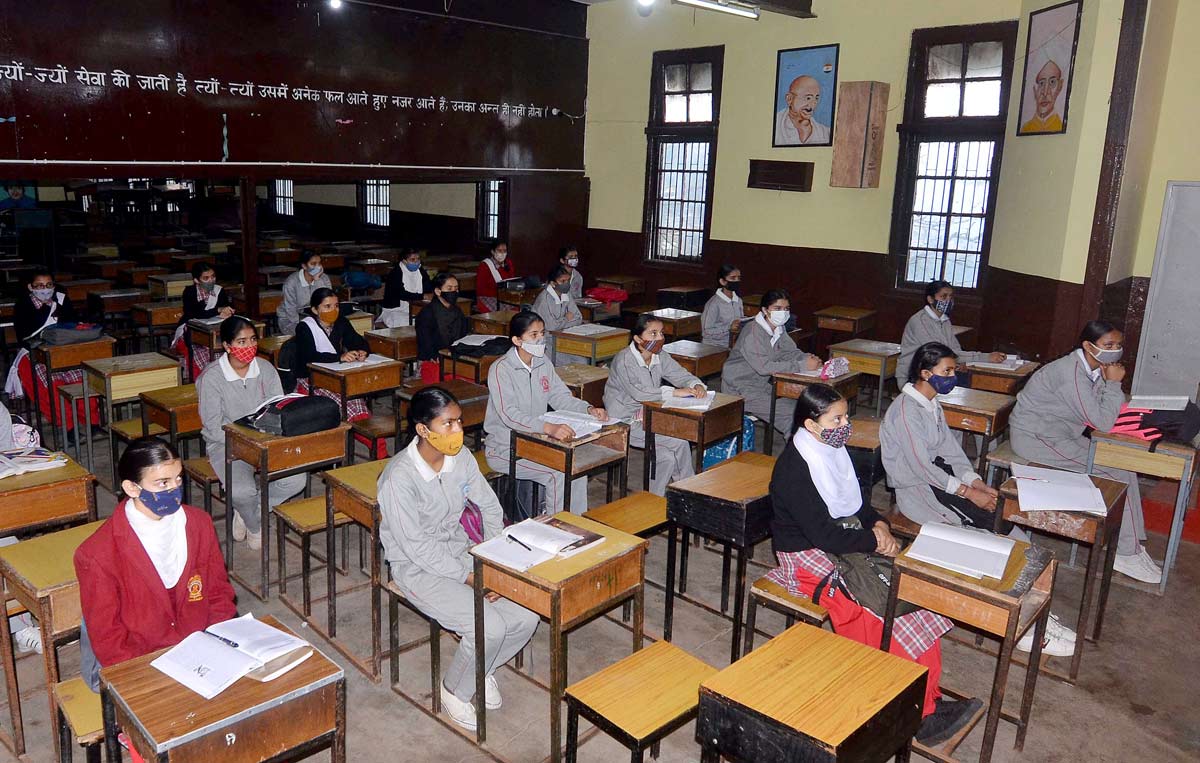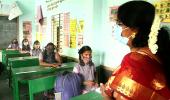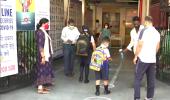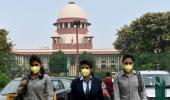Schools need to be reopened in a phased manner, starting with primary sections with proper implementation of multi-layered COVID-19 mitigation measures, according to experts at the Indian Council of Medical Research.

In an opinion piece published in The Indian Journal of Medical Research, the experts said testing strategies in school settings could serve as key interventions to check the potential spread of the virus underlining routine temperature or symptom checking in schools should be avoided due to limited evidence on their utility.
Experts cited a UNESCO report, which stated that school closures in India for more than 500 days have affected over 320 million children.
It has hit hard children from the relatively deprived hamlets and slums with many not being able to read more than a few words.
A survey has found that students missed out on social interactions, lacked physical activity and had a sense of loosening the bonds of friendship due to prolonged school closures, mentioned the piece Reopening of schools during COVID-19 pandemic: A persistent dilemma.
In the opinion piece that has synthesised scientific evidence from within India and abroad on the justification for reopening of schools, experts said knowing that COVID-19 transmission is an "over-dispersed" phenomenon, testing strategies in schools could serve as key interventions to check the potential spread of the virus.
It must also be acknowledged that Covid testing strategies in schools should act as an adjunct and not substitute to other organisational and behavioural interventions, stated the perspective by Tanu Anand, Balram Bhargava and Samiran Panda.
Evidence indicates that restoration of functioning of the education system as it was in pre-Covid times, as early as possible appears prudent in the current Indian context, they said.
"However, it would be necessary to examine state-specific as well as district-specific data on earlier waves of infection and the status of adult vaccination coverage to project any plausible third wave and its potential intensity to inform decisions related to schools reopening."
"It is recommended that schools should have access to on-site testing facilities according to existing country-specific guidelines. Temporary or localised closures of a class or school may occur depending upon the local community transmission levels or if COVID-19 indicators worsen."
School teachers, staff and those involved in the transportation of children should be vaccinated on an emergent basis and continue to use a mask even after receiving the jabs, the experts underlined.
This combination intervention is critical as vaccination against COVID-19 does not prevent acquisition or transmission of infection, and it is true for adults and children.
"Opening of schools under this combination-intervention will ensure not only continuity of in-person learning but also instil confidence among parents that schools are safe for their children," they said.
COVID-19 vaccine trials for children and adolescents are still ongoing in India. Available evidence suggests that those aged 12 years and above are at a high risk of contracting the infection. Therefore, they must be prioritised for vaccination compared to the younger children, the experts said.
To get the maximum benefits of reopening schools, the opinion piece highlighted the need for devising proactive multi-layered mitigation strategies to create an optimal learning environment for the children with a reduced risk of transmission.
Consistent and appropriate use of masks, implementation of a standard protocol for sanitization and hand washing are the key pillars of Covid-appropriate behaviour and must be practised by students and school staff alike.
Ensuring the provision for such behaviour change practices requires planning and resource allocation by school authorities, the experts highlighted.
While masks are not recommended for children under five years, six to 11-year-old children may wear a mask depending on their ability to use them safely and appropriately. Those aged 12 years and above should wear masks under the same conditions as adults, they said.
Schools should ensure that the indoors are well ventilated and air conditioners should be avoided. Exhaust fans should be installed in classrooms to curtail the potential spread of the infection.
Also, children should be advised against sharing meals, spending long hours in canteens or dining halls.
Referring to the open-air classes propagated by Nobel Laureate Rabindranath Tagore at Santiniketan, Anand, Bhargava and Panda said, "COVID-19 has forced us to explore and discover innovative learning methods, particularly in the nature's lap."
They said that there is ample evidence to suggest that children aged 1-17 years have similar susceptibility to a mild form of COVID-19 as in adults.
"However, the risk of severe disease and mortality in children when compared to adults is much less," the experts said.
Anecdotal evidence from India also points towards a sporadic rise in Covid cases in states that initiated the reopening of schools after the first wave. All these points towards over-dispersed phenomenon in COVID-19 transmission in various settings, they said.
It should also be noted that global evidence suggests schools as "non-drivers" of transmission of SARS-CoV-2 infection in the community, the experts underlined.











 © 2025
© 2025